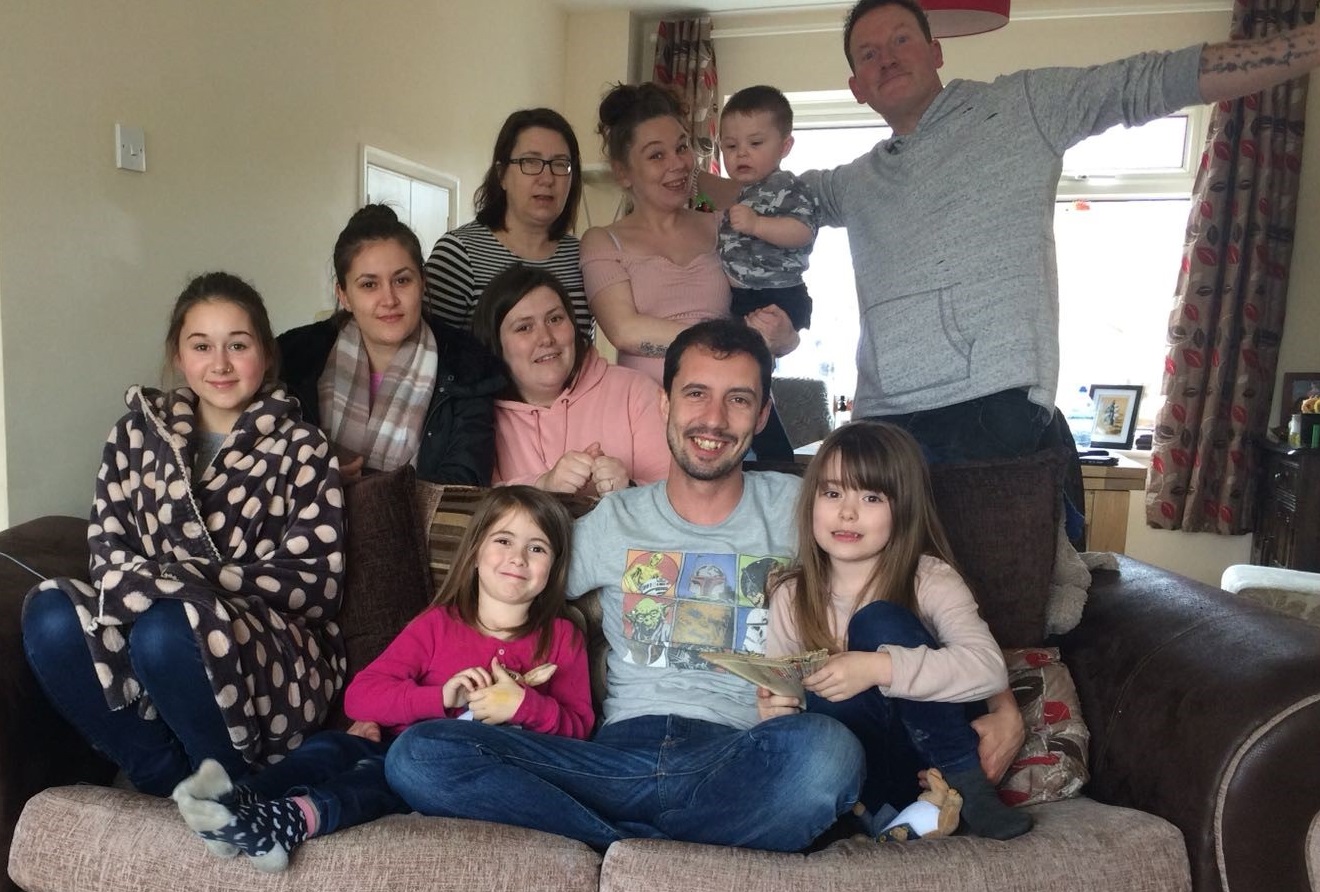Reminder of ongoing need for cornea donors to mark National Eye Health Week
People are being reminded of the importance of having a conversation about their donation wishes with their family or friends this National Eye Health Week, as the latest statistics from NHS Blood and Transplant show patients across the country face longer waits for cornea transplants due to a drop in available corneas. There are currently half as few corneas available than are needed for patients in the UK.
The COVID-19 pandemic has caused extra pressures across the NHS and for cornea patients this has meant getting a transplant has become more complex because opportunities to donate are more challenging. Changes to surgery measures and evolving rates of COVID-19 infections means there are currently less opportunities for safe and suitable cornea donations and transplants to go ahead. Every potential organ and tissue donor is tested for COVID-19 and if they are positive, they are unable to donate (1).
One in 10 people on the NHS Organ Donor Register have indicated that they do not wish to donate their corneas, making corneas the part of the body that most people say they do not wish to donate (2). However previous research from NHS Blood and Transplant has shown that donation is more likely to be agreed if your family or friends know about your wishes. This National Eye Health Week, NHS Blood and Transplant is urging people to consider the extra challenges faced by cornea patients and to think about giving the gift of sight once more.
There is hope that the introduction of Max and Keira’s Law – the new law relating to organ and tissue donation in England – which came into effect on 20th May, will lead to an increase in the number of donors, however families will continue to be consulted before organ donation goes ahead. It is therefore still important to ensure your relatives know what you would want to happen if organ donation becomes a possibility (3).
As of 15 September, there were 161 corneas in NHS Blood and Transplant’s eye banks – this is far less than the 350 corneas needed at any one time to supply to hospitals and means longer waits for patients for a suitable match.
This, coupled with the fact that corneas are the least selected tissue to donate, has led to potential cornea recipients having to endure a longer wait to have their sight restored or their condition improved.
Helen Gillan, General Manager for Tissue and Eye Services at NHS Blood and Transplant, said: “Donating sight means there can be light after darkness. No one should have to go without being able to see their loved ones through the eyes’ lens, which is why we are reminding people to consider giving the gift of sight.
“We recognise that it is more difficult for a donation to go ahead at this time and we’ve made it easier for our nurses to have more conversations with families when they are referred as a possible donor to try to improve the situation.
“We understand that people often view the eyes with more emotion and see them as more symbolic than other parts of the body but if you agree to cornea donation please help by sharing your decision with friends and family, so they are better equipped to act for you should that day ever come.”
“The eye is never transplanted whole (4) – only the cornea is transplanted. The cornea is the clear outer layer at the front of the eye that helps the eye to focus light.
“Unlike with organ donation, corneas don’t have to be donated immediately. Corneas can be donated up to 24 hours after death and donation can take place in hospital, hospices, or funeral homes.”
Get the facts about cornea donation
Justine's story
At sixteen years old, Justine Watson from Kent was diagnosed with keratoconus, an eye disorder leading to progressive thinning of the cornea.
After her first cornea transplant in her left eye aged eighteen, Justine received another donated cornea that was transplanted into her right eye four years later.
 Justine said, “I had a little boy and the transplants made me realise just how bad my vision had become, as I could now see how beautiful he truly was.”
Justine said, “I had a little boy and the transplants made me realise just how bad my vision had become, as I could now see how beautiful he truly was.”
Five years after her right cornea transplant the graft had sadly failed, so another transplant was required.
Justine said, “The gift of each cornea meant that I could lead a full life. I have seen my beautiful children grow up – one boy and four girls – and I have also been able to see my grandchildren come into the world.”
Justine’s second right cornea transplant has given her 23 years of sight out of her right eye, and her left cornea transplant provided 28 years of vision from her left. None of which would have been possible without cornea donors.
Vision in Justine’s left eye started to decline over the last four years and she was put on the waiting list for a second left cornea transplant.
 Justine said, “This time I had to wait quite a while for my transplant as I was told there was a shortage of donor corneas. I was put back on the list and was then given a new date at the end of July 2020 – which just so happened to be my 50th birthday!”
Justine said, “This time I had to wait quite a while for my transplant as I was told there was a shortage of donor corneas. I was put back on the list and was then given a new date at the end of July 2020 – which just so happened to be my 50th birthday!”
“I will always be forever grateful to the four donors that donated their corneas, and their families for granting their donation wishes, allowing me to see more clearly. Individual leaves on a tree, my grandchildren’s dimples, my partner’s first grey hairs…”
“I think that corneas get overlooked when families are making that hard decision about donating their loved ones’ organs and tissue. The gift of sight is truly amazing, and it really is a precious gift.”
Over the last year, 3,782 people in England have had their sight restored through cornea transplants. One donor can help up to 10 people, helping restore or improve their vision and allowing them to see their friends and family properly again.
You can register your donation decision today. Make sure you have told those closest to you what your organ and tissue donation wishes are so that they know to honour your decision.
- The safety of organ donation and transplantation is our priority. Every potential organ donor is being tested for COVID-19 and if someone has COVID-19 they will not be able to donate. Although there is no known transmission of COVID-19 through organ donation, as patients who need a transplant have to be immuno-suppressed, any risks need to be minimised as much as possible. Get more information about how we'er responding to coronavirus
- The NHSBT Transplant Activity Report 2019/20 states that as of 31 March 2020, 10.1% of people who joined the organ donation register chose not to donate their cornea.
- The new law, which saw England change to an opt out system alongside Wales and Jersey, means that people in England will now be considered as willing to donate, unless they have opted out, are in one of the excluded groups or have told their family they don’t want to donate.
- The whole eye is removed for cornea donation and transported to one of our eye banks, located in Manchester and Bristol. The cornea is then removed from the eye and stored in a solution before being taken for transplant. The sclera, which is the white part of the eye, can also be donated to help people. After donation, our specialist team will ensure the donor maintains a natural appearance.
Pictures
- Justine and her family, Easter 2018
- Justine on her 50th birthday, pre-surgery
